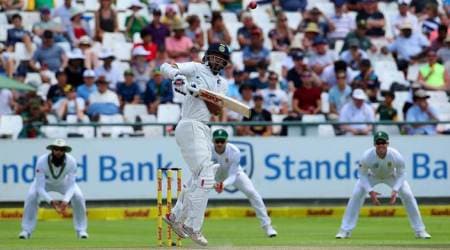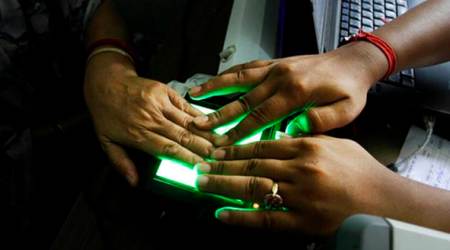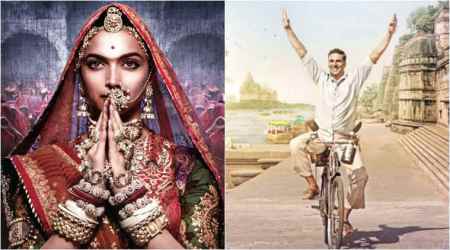 The recent trend shows that the Chief Justice appears to be allocating cases on a selective basis. (Representational photo)
The recent trend shows that the Chief Justice appears to be allocating cases on a selective basis. (Representational photo)
The Constitution is the suprema lex for this country. In Kesavananda Bharati v State of Kerala, it was held that supremacy of the Constitution is among the basic features of the Constitution of India and is protected by the authority of an independent judicial body to act as interpreter of a scheme of distribution of powers.
In a recent order in the matter of Campaign for Judicial Accountability and Reforms v Union of India and Others, a five-judge bench held that, “… the Chief Justice is the master of the roster and he alone has the prerogative to constitute the Benches of the Court and allocate cases to the Benches so constituted.”
Even though empowered with the order of November 10, 2017, does the Chief Justice of India possess absolute and arbitrary powers to “constitute the Benches of the Court and allocate cases to the Benches so constituted”? Of course not. He is as much bound by the Rule of Law as anybody else. If there is one principle firmly rooted in our constitutionalism, it is: “Be you ever so high, law is above you.”
Yet, a little insight into the functioning of the Supreme Court today will reveal that the Chief Justice has been exercising his powers in an opaque manner. Several instances reflect that the Constitution Benches are constituted by including certain judges and excluding certain others. It is not my endeavour to criticise or attack any individual judge. But the fact remains that senior judges and even judges known for their proficiency in certain branches of law are excluded from such benches.
The five-judge bench which passed the order of November 10, 2017, was constituted by the Chief Justice ignoring senior-most judges. Even assuming that the Chief Justice felt that the bench of Justice J. Chelameswar and Justice S. Abdul Nazeer could not have passed a judicial order referring the writ petition to a bench comprising the first five judges in the order of seniority, the Chief Justice should have constituted a bench of the same judges. The order passed by the bench presided over by the Chief Justice speaks about “judicial discipline and decorum” and “convention”. Those very principles would oblige the Chief Justice not to pick and choose in constituting benches.
The case of Justice K.S Puttaswamy (Retd.) and another v Union of India, or the Aadhaar matter, is more curious. This writ petition was heard by various benches of which Justice Chelameswar and Justice S.A. Bobde were members right from 2013. On August 11, 2015, a bench comprising Justice Chelameswar, Justice Bobde and Justice C. Nagappan directed that the matter be referred to a larger bench. Chief Justice J.S. Khehar correctly reconstituted the bench on July 18, 2017 which comprised himself, and Justices Chelameswar, Bobde, Chandrachud and Nazeer, which then referred the question of whether privacy is a fundamental right to a larger bench of nine judges. This larger bench comprised, among others, Justice Chelameswar, Justice Bobde and Justice Nazeer. The privacy matter was decided on August 24, 2017 and at least one of the judges, Justice Nariman, at the end of his judgment, directed that the matters be sent back for adjudication to the original bench of three judges in light of the judgment. It is a matter of record that the Aadhaar matter was not being fixed for hearing which led to the repeated mention by Shyam Divan, senior advocate, on behalf of the petitioners before Chief Justice Misra, who ultimately constituted a five-judge bench as suggested by the Attorney General but excluded most of those judges.
Benches are constituted by the Chief Justice considering the previous orders and it is rare to exclude from them the judges who had heard the matter earlier and are still available.
The recent trend shows that the Chief Justice appears to be allocating cases on a selective basis. Again, it is not my endeavour to criticise the outcomes or judgments in such cases. But the manner of allocation raises serious issues about the independence of the judiciary. For example, a recent matter challenging the appointment of Additional Director of CBI was placed before the bench of Justice Ranjan Gogoi and Justice Navin Sinha, but the same was released by an order to the following effect, “List the matter on Friday i.e. 17th November, 2017 before a Bench without Hon’ble Mr. Justice Navin Sinha.” The matter was later listed before a bench presided over by Justice R.K. Agrawal on November 17, although on that very day Justice Gogoi was sitting not with Justice Sinha but with Justice Rohinton F. Nariman and Justice S.K. Kaul. The matter ought to have been placed before that bench.
Unfortunately, this has been going on in the Supreme Court for some time. Chief Justice Khehar allocated the Birla Sahara matter to a bench presided over by Justice Arun Mishra and Justice Amitava Roy overlooking 10 senior benches. Chief Justice Khehar, after converting a letter by the widow of Kalikho Pul into a petition, allocated the same to the bench of Justice A.K. Goel and Justice U.U. Lalit, who were sitting in Court No. 13, overlooking Court Numbers 2 to 12 for no apparent reason.
An independent and strong judiciary is the basic feature of the Constitution. We are faced with an extraordinary situation where the judiciary is being marginalised from within, not from outside. It is important for this institution to ensure that an impression is not given to the public that the constitution of benches and allocation of matters is being done in a manner more palatable to the executive. Government is the single biggest litigant before the Supreme Court. Citizens are entitled to expect the free and fair administration of justice.
The Chief Justice will be well advised to correct this course. If he doesn’t, the other judges must step in. The independence of judiciary is the collective responsibility of all the judges. Let us hope and trust that they will not fail the institution.
For all the latest Opinion News, download Indian Express App
- Jan 12, 2018 at 6:43 amTo me, this CJI seems to be compromised. Some of his actions badly lack transparency, in places where he is not following the convention.Reply
- Jan 12, 2018 at 6:18 amSalute Senior Advocate Mr Dushyant Dave. I have been your fan and a follower when I started practicing law in 1987 in the High Court of Gujarat with Mr J. T. Trivedi, my father and who still practices law in Guajrat High Court and the courts across in Gujarat State. Then I became a judge of the Ahmedabad City Civil and Sessions Court in Ahmedabad and I then resigned in year 2003 and left the country (India) with my wife and daughter, finally in March 2004: ( s: scroll /article/746832/i-was-sick-of-the-hateful-climate-in-gujarat-judge-explains-why-he-quit-after-the-riots) Salute you for your analysis and being able to call 'spade a spade'. Hoping sincerely that you be safe and healthy and do not meet the fate as like Judge Loya etc. and that lawyer from Nagpur who was found dead in the building of the High Court of Maharasthra (Nagpur Bench) after he had filed a writ pe ion about the death of Judge Loya.Reply
- Jan 12, 2018 at 5:37 amWhat nonsense is this? He is suggesting rebellion by the fellow judges to control the CJI. He has repeated that he is not criticising the judges but yet does the same throughout. How many Chiefs can the judiciary, executive and the legislature have at the same time? It is advocates who are responsible for the Govt being the biggest litigant. If the govt takes any decision on any matter,that is challenged as uncons utional. If the Cons ution considers that the CJI is the master for allotting the judges/benches for a particular case, who is this writer to change it? He should have become the CJI and done what he intends to do. I know this person to be against the present executive. Will it not be considered nepotism if the CJI accedes to this person's diktats on benches? I urge the CJI to consider this write-up itself as material for pursuing contempt proceedings suo motu and see to its logical conclusion. He has to get what he deserves. SC established it's independence in NJAC case.Reply
- Jan 12, 2018 at 6:40 amHas Mr. Dave presented incorrect information ?? The answer is "NO". He has stated fact, simple fact is "Nobody is Above LAW"Reply
- Jan 12, 2018 at 2:23 amThis is docket manipulation at the highest levels. It is rampant at lower levels and is part of judicial corruption. The CJI must not be in charge of the docket. Instead, the assignment of judges should be done on a om basis. There are ways to make this possible while allowing assignment by expertise. It is high time the parliament intervened or the other judges stepped in.Reply































